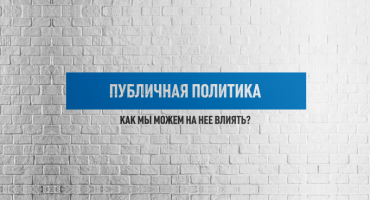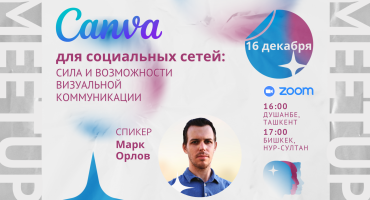This video is about building a personal brand and online reputation. We will talk about how to improve your social media presence – the steps you need to take to build your reputation, as well as some things to look out for.
Welcome to this film on building a personal brand and it’s also about building a reputation online. As a journalist, you need to stand out from the crowd. You need to be heard, above the noise. Do you need people to take you seriously and to trust you. And if you don’t have trust you don’t have anything in social media, or as a reputation as a journalist so this is all about how you can increase that how you can increase your visibility, the steps that you need to take to do this to build your reputation and also some of the things to watch out for.
I’m a former BBC journalist, I spent 15 years in the newsroom and back then, believe it or not there wasn’t such a thing as the internet, there was no social media, journalists just worked for an organisation, and they didn’t really have an individual profile, unless you were a presenter or something. Increasingly as social media came along then there was an opportunity for journalists really to create their own presence online.
————
When I’m training journalists how to use social media, I usually say, think about the start of it like a traffic light.
So, with a traffic light, you have the red part, the amber part, and the green part, the red part is what you don’t want to reveal to the world. So, I think it’s important to start talking about safety and online safety protect the information you don’t want to get out there.
The green part is obviously things that you’re happy sharing with the world, and happy for people to know about.
And the amber part is just a bit more colour and personality. If you don’t have personality these days and you haven’t got an opinion, you’re going to get lost in all the noise. So, it’s really important that you develop your own voice and tone, and you have some kind of a human relationship with your audience.
————
When you’re building your personal brand online it’s really important to start with a question why.
Why are you doing this?
And what do you want to get out of it?
Which platforms do you want to be seen on?
And who are you aiming at?
What exactly is it that you’re going to deliver to people that they can’t get anywhere else, that’s more valuable than anywhere else.
That’s really important when you’re building your brand, you have to be distinctive, you have to have a clear voice.
You need to make sure that all your social media profiles are first of all optimised, so they are the best they can be.
You need to have a really good clear photo.
You need to make sure that your bio, the bit it says about you, is very clear because people scroll their screens all the time and you have to stop them and you have to attract attention.
So a good photo. Clear keywords in your bio to explain who you are and what you do, those are essential.
You need to work out which platforms to be on, what kind of content you can create, how frequently should you be there. Lots of things to be thinking about. But it’s not that difficult. It just takes a little time and effort.
————
One of the things that’s all journalists or bloggers worry about when they’re using social media is making a mistake, or damaging their reputation in some way.
Most of the issues that go wrong social media are human error.
So, check your spelling
Make sure your facts are correct
Don’t get angry don’t get into an argument with people.
It’s all about building trust and being accurate.
————
Over the last 12 years since I left the BBC, I’ve trained well over 6000 journalists around the world.
I introduced Twitter’s the BBC newsroom and back then in 2008, it was a new thing for everybody. They were all a little worried about using it and I found this with everyone. Fear about making mistake is one of the biggest barriers to using social media effectively.
So I think you need to be clear on why you’re doing it, and what you want to get out of it, and how you can be of use to your audience.
What’s your tone of voice going to be? Are you going to have a specialist area? And personally I think it’s a lot easier if you do. If there’s something you’re passionate about, you could become an expert on it.
And if you are curating content and putting stories out there, and information out there that’s useful to other people, that’s how you build a reputation and brand.
So one of the things we said to the BBC journalists was ‘Don’t do anything stupid.’ That was really our advice. And also, in terms of guidelines we’d say, “if you wouldn’t say it on air, or you wouldn’t say to grandmother. Don’t say it on social media.”
Once you’ve created your profile, you’ve decided where you want to be, it’s really important to think what kind of stories are you going to tell people, and that is incredibly important that you think what do they need to hear from me?
At the BBC World Service, they have a model based on audience needs. What’s the audience need from us.
They need to be updated. Tell somebody what’s happened.
They need to be educated. So, tell them something they didn’t know about something give them a few extra facts or background.
They need perspective. So, how does this affect everything in the in the rest of the world, how does it affect other people how does it affect me a whole sort of overview of what’s going on
So that’s three needs to start with, Update me, educate me, give me perspective.
The other thing is that people would also like to be diverted. They’d like to be amused. We can’t be serious all the time. So something a little bit fun or interesting – divert me, amuse me.
Then we have the keep me on trend. What’s the conversation on social media, how people reacting online to something?
And then the final one is inspire me, inspire me is, we all want hopeful stories we all want to believe there’s hope in the world. So those are actually some of the most social stories that you can get.
People like inspirational stories. So if you can tell something that has a hopeful side to it, people will enjoy that and you will build that trust. So, a mix of stories. If it’s always just serious serious serious. That’s not going to necessarily work with your audience. But you need to understand who you’re aiming at first. That’s absolutely critical.
If you have found a spelling error, please, notify us by selecting that text and pressing Ctrl+Enter.






